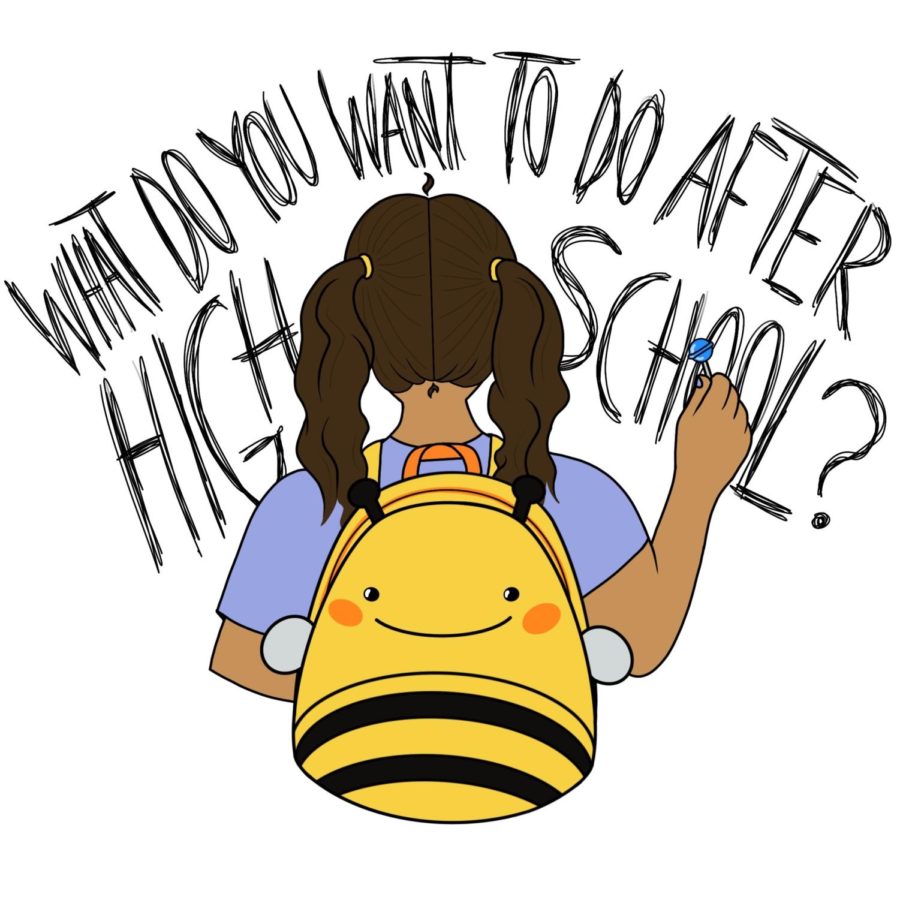Opinion | The complicated balance between childhood desire and practicality
October 14, 2022
As kids, we frequently asked each other what we wanted to be when we grew up. Most replies were, to say the least, unlikely—princesses, superheroes, or even supernatural creatures. We dreamed big, and no one told us we couldn’t because we were 3 or 4. But as we got older, we learned that these dreams are usually unattainable, and kids’ dreams shifted from princesses and superheroes to firefighters, lawyers, or doctors.
My first dream job was to own a museum. Then, it was to be the U.S. president, a naturalist, a marine biologist, and, finally, a biologist. As I got older, the more ‘sensible’ my ‘dream job’ became. Maybe this was simply because I matured, but most students experience a similar trend.
“You have to start thinking about this question, ‘What do I want to be when I grow up?’ And, as a kid, it’s a fairy, but as you get older you have to be realistic, and the question becomes a much bigger problem,” notes ETHS freshman Devika Clark.
Finding your passions is a part of childhood and finding your way in the world. As a kid, through school or extracurricular activities, we get to learn about different subjects that might spark our passion and also lead to a career later in life. High school is an especially good time to explore these passions and all the different careers they can connect us to, since we are offered so many choices of classes and electives, especially at ETHS. Through these experiences, we can discover our passions and figure out ideas about how to pursue them—including, sometimes, more achievable ideas. If I love to sing and dream of being on Broadway, I might eventually think beyond Broadway and get excited about pursuing my interest in music in other ways, through community theater, or teaching as a result of having to think about the future more realistically than when I was a younger kid. But it’s a tricky balance. What’s the line between letting go of a dream and getting more practical about how to achieve that dream? Sometimes as we mature, we narrow our choices too soon. This need to find more attainable jobs isn’t just due to maturing. We are taught at a young age that to survive, you need a job—but not just any job; it needs to be one that will pay enough to cover your bills, taxes, insurance and mortgage. Thus, dream jobs change from being a zoo keeper or famous actor, to an accountant or banker.
In part, this is the fault of capitalism. The question, ‘What do you want to be when you grow up?’ makes life center around your job. What do I want to be when I grow up? What about happy and adventurous? A good baker, artist, or reader? Why don’t those things matter just as much as your job? Unfortunately, they can’t, because we depend on our jobs to survive.
This doesn’t only apply to our ‘dream jobs.’ Most people have been taught since a young age that college is the key to success. In a multitude of ways, this is true.
Cornerstone University explains that, “College grads earn $17,600 more than high school graduates annually. People with only a high school degree are three times more likely to live below the poverty line. The unemployment rate for those without a college degree is twice as high as those with one.”
But is college really an attainable goal for most people? The National Center for Education Statistics reports that, “At public four-year institutions, average annual tuition and fees were $9,400 (2020-2021).”
For a four year education, that totals $37,600. College is so expensive that many families sacrifice a lot so their children can go. Kids are pushed to participate in after-school activities that they are not particularly interested in, all so they look good on their college applications. Despite this, there is still stigma around community college, or not going to college at all.
“Literally every family member has asked me [about my post-high school plans], from the day I started high school. We would host family parties, and every single person asked me, ‘What do you want to do after high school?’” Clark continues. “As soon as we can talk, people ask us.”
Freshman Eden Osborn echoes Clark’s experience.
“The first week of high school, it’s, ‘Oh, how’s high school?’ The second week, it’s, ‘What do you want to do after high school? What college do you want to go to?’” Osborn explains.
In all, when kids are made to think about their college or career plans, it can add unnecessary stressors to an already stressful environment. Even worse, these questions are posed at such a young age that we can’t fully comprehend their significance.
The solution can be tricky. Do we let kids be kids for as long as possible, even if this could underprepare them? Or, do we add on stress about their futures, money, and the realities of life, so they have a better chance of success? How long will it take to reach a place where there is a perfect balance between these two options?










